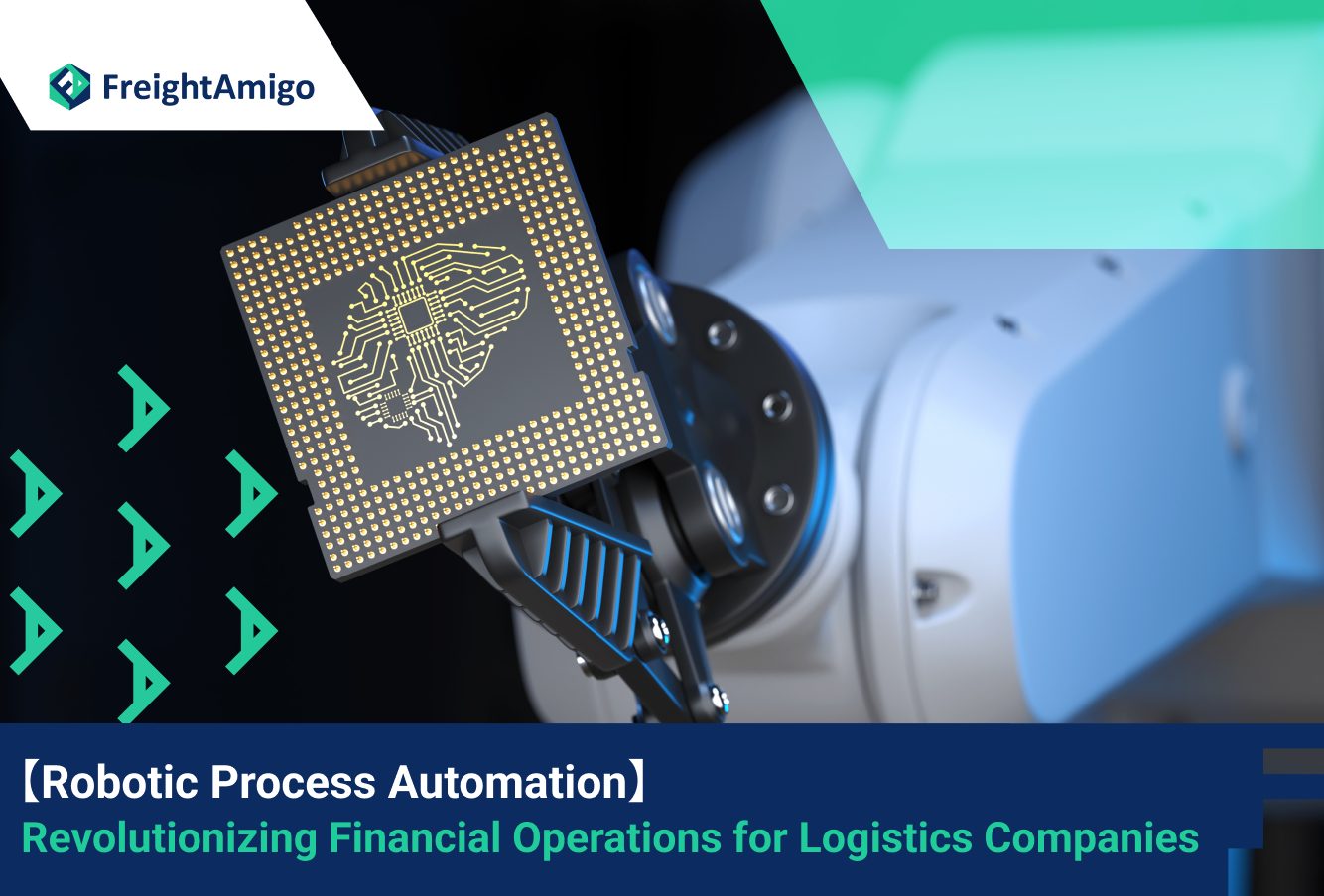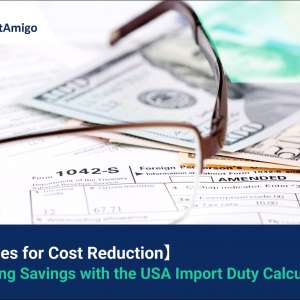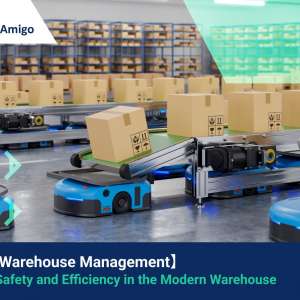Author Name: Tiffany Lee – Marketing Analyst at FreightAmigo
In today’s fast-paced and highly competitive business environment, logistics companies are constantly seeking ways to improve efficiency, reduce costs, and enhance customer satisfaction. One technology that has emerged as a game-changer in the industry is Robotic Process Automation (RPA). RPA has the power to revolutionize financial operations for logistics companies by automating repetitive tasks, streamlining processes, and improving accuracy. In this article, we will explore the transformative potential of RPA in financial operations for logistics companies, its benefits, and real-world use cases.
Want To Compare The Best Express, Air Freight, Sea Freight, Rail Freight & Trucking Rates So As To Have Better Control On Cost?
The Rise of Robotic Process Automation in Finance
Robotic Process Automation, or RPA, is a cutting-edge technology that uses software robots, or bots, to automate repetitive and rule-based tasks. These bots mimic human interactions with software systems, enabling them to perform tasks such as data entry, reconciliation, and report generation with speed and accuracy.
Finance functions within logistics companies can greatly benefit from RPA. Traditionally, financial operations involve manual data entry, complex reconciliations, and repetitive tasks that are time-consuming and prone to errors. By implementing RPA, logistics companies can automate these tasks, streamline processes, and improve overall efficiency.
Benefits of Robotic Process Automation in Financial Operations
The adoption of RPA in financial operations offers numerous benefits for logistics companies. Here are some key advantages:
1.Increased Efficiency and Productivity
RPA enables logistics companies to automate repetitive tasks, freeing up valuable time for finance teams to focus on more strategic and value-added activities. By automating tasks such as data entry, reconciliations, and report generation, RPA significantly reduces the time and effort required to complete these processes. This increased efficiency translates into improved productivity and faster turnaround times.
2.Enhanced Accuracy and Compliance
Manual data entry and reconciliation processes are prone to human errors, which can have significant implications for financial operations. RPA eliminates the risk of human error by ensuring accurate and consistent data entry and reconciliation. Furthermore, RPA can be programmed to comply with regulatory requirements, reducing the risk of non-compliance and associated penalties.
3.Cost Savings
Automating financial processes through RPA can lead to substantial cost savings for logistics companies. By reducing the need for manual labor and streamlining processes, companies can achieve significant cost efficiencies. Additionally, RPA eliminates the need for hiring additional staff to handle repetitive tasks, further reducing operational costs.
4.Improved Decision-Making
RPA provides logistics companies with real-time and accurate financial data, enabling better decision-making. With automated data entry and reconciliation, finance teams can access up-to-date information and generate reports quickly. This allows for faster analysis and decision-making, empowering logistics companies to respond swiftly to market changes and make informed strategic decisions.
5.Scalability and Flexibility
RPA is highly scalable and can be easily adapted to accommodate changing business needs and volumes. As logistics companies experience growth or fluctuations in demand, RPA can seamlessly adjust to handle increased workload or reduce capacity as needed. This scalability and flexibility provide logistics companies with a competitive edge in an ever-evolving market.
Real-World Use Cases of RPA in Financial Operations for Logistics Companies
To understand the practical applications of RPA in financial operations for logistics companies, let’s explore some real-world use cases:
1.Automated Invoicing and Accounts Receivable
RPA can automate the process of generating and issuing invoices, as well as managing accounts receivable. Bots can extract relevant information from sales orders, update financial systems, and generate invoices with minimal human intervention. This automation reduces manual errors, speeds up the invoicing process, and improves cash flow management for logistics companies.
2.Streamlined Accounts Payable
RPA can streamline the accounts payable process by automating tasks such as invoice processing, matching purchase orders with invoices, and initiating payments. Bots can extract data from invoices, validate them against purchase orders, and update payment systems. This automation improves accuracy, reduces processing time, and enhances vendor relationships.
3.Financial Reporting and Analysis
RPA can automate financial reporting and analysis, enabling logistics companies to generate accurate reports and perform in-depth analysis quickly. Bots can extract data from various sources, consolidate it, and generate reports based on predefined templates. This automation eliminates manual data entry errors, reduces reporting cycle times, and provides real-time insights for decision-making.
4.Regulatory Compliance
Compliance with regulatory requirements is crucial for logistics companies. RPA can help automate compliance-related tasks, such as data validation, risk assessment, and audit trail creation. Bots can perform these tasks with precision, ensuring adherence to regulatory standards and reducing the risk of non-compliance.
5.Fraud Detection and Prevention
RPA can play a vital role in fraud detection and prevention within financial operations. Bots can continuously monitor financial transactions, identify suspicious activities, and trigger alerts for further investigation. This automation enhances the effectiveness of fraud prevention measures and minimizes the financial risks associated with fraudulent activities.
Implementing Robotic Process Automation in Financial Operations
The successful implementation of RPA in financial operations requires careful planning and execution. Here are some key considerations for logistics companies:
1.Process Assessment and Prioritization
Begin by assessing existing financial processes and identifying tasks that can be automated through RPA. Prioritize processes based on their impact on efficiency, accuracy, and overall business objectives. Focus on processes that are repetitive, time-consuming, and error-prone.
2.Technology Selection and Integration
Choose an RPA platform that aligns with your logistics company’s specific requirements. Ensure compatibility and seamless integration with existing financial systems and applications. Collaborate with IT teams to ensure a smooth implementation and integration process.
3.Change Management and Training
Implementing RPA requires change management and training programs to help employees adapt to the new technology. Provide comprehensive training to finance teams on how to work alongside bots and leverage RPA capabilities to enhance their productivity and effectiveness.
4.Continuous Monitoring and Improvement
Regularly monitor and assess the performance of RPA bots in financial operations. Identify areas for improvement and optimization. Collaborate with RPA vendors and experts to stay updated with the latest advancements and best practices in RPA.
Conclusion
Robotic Process Automation is revolutionizing financial operations for logistics companies. By automating repetitive tasks, streamlining processes, and improving accuracy, RPA enables logistics companies to enhance efficiency, reduce costs, and deliver superior customer experiences. With the right implementation strategy and ongoing optimization, logistics companies can unlock the full potential of RPA in their financial operations, paving the way for growth and success in an increasingly competitive industry. Embracing RPA is a strategic move that positions logistics companies as pioneers in financial technology and sets them on the path to global growth and customer-centricity.
There Are Different Options For Cargo Transportation. If You Want To Choose The Most Convenient And Suitable Solution, It Is Best To Have The Full Support Of Logistics Experts! If You Are Planning To Ship Goods Overseas, Please Go To The FreightAmigo Page For Inquiries.
===
Read More:
【Disrupting Borders】 The Revolution of FinTech in Global Trade Finance
【Digital Revolution】 Transforming the Future of Procurement in Supply Chain
===
If you have any inquiries on logistics/supply chain, feel free to contact FreightAmigo now:
Chat with us online OR
Phone : +852 28121686
WhatsApp: +852 27467829









































